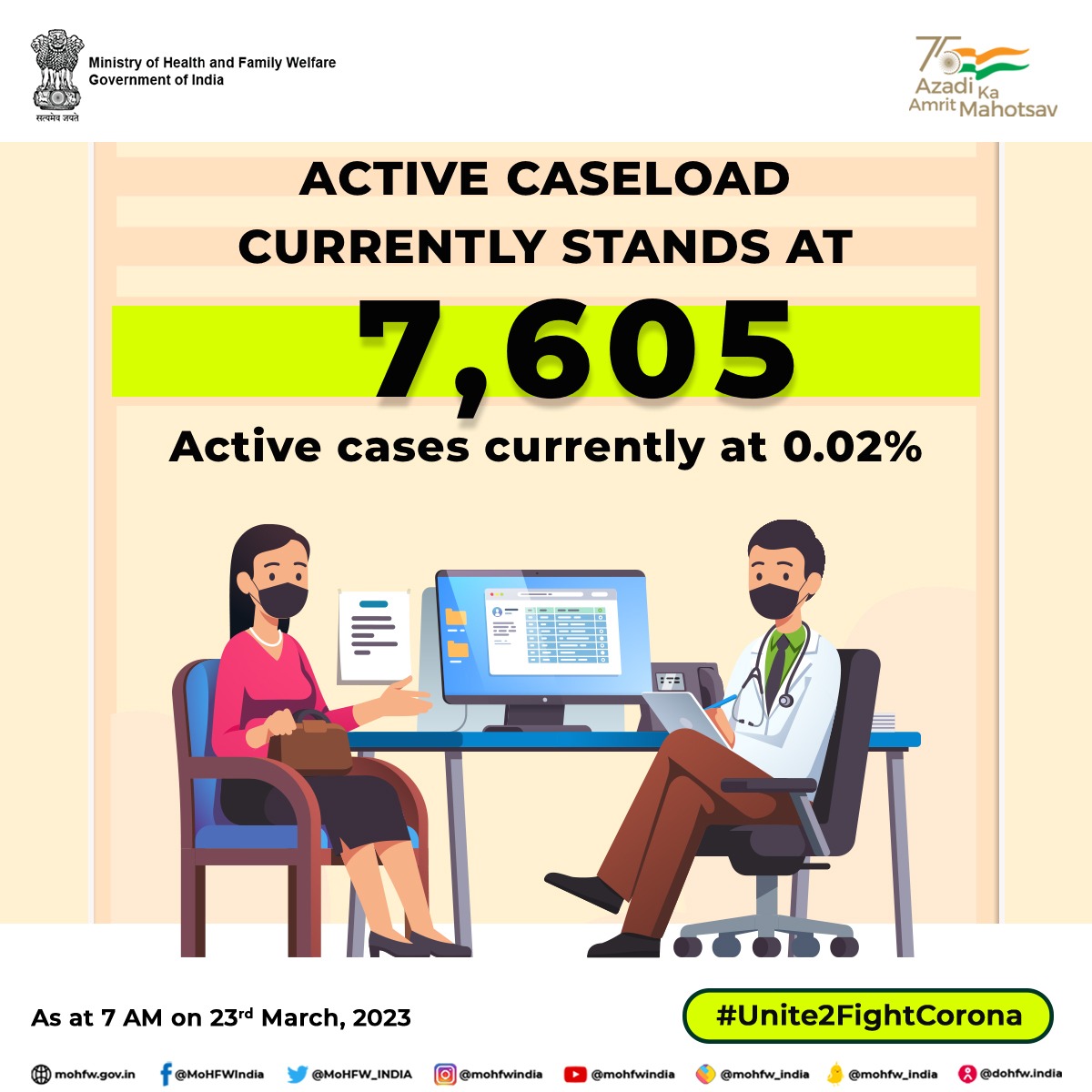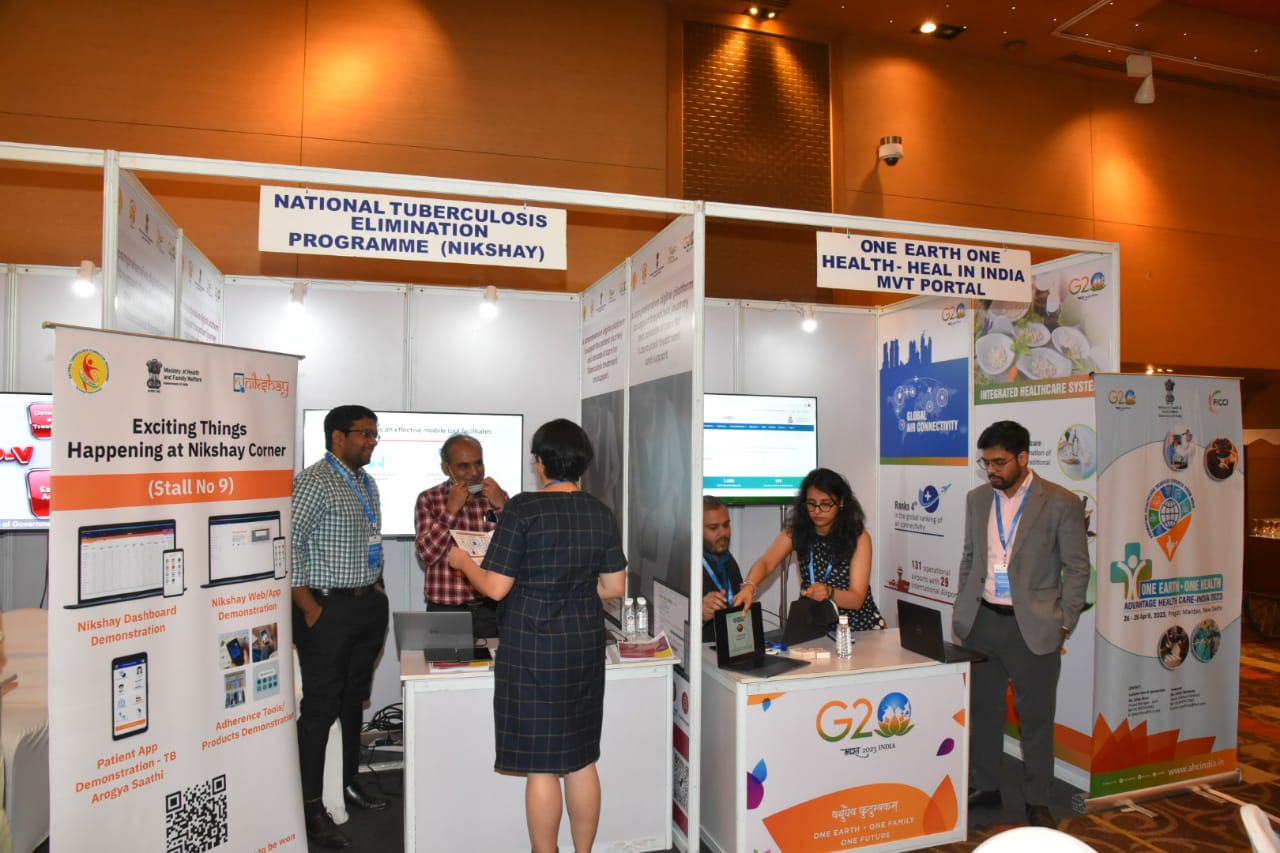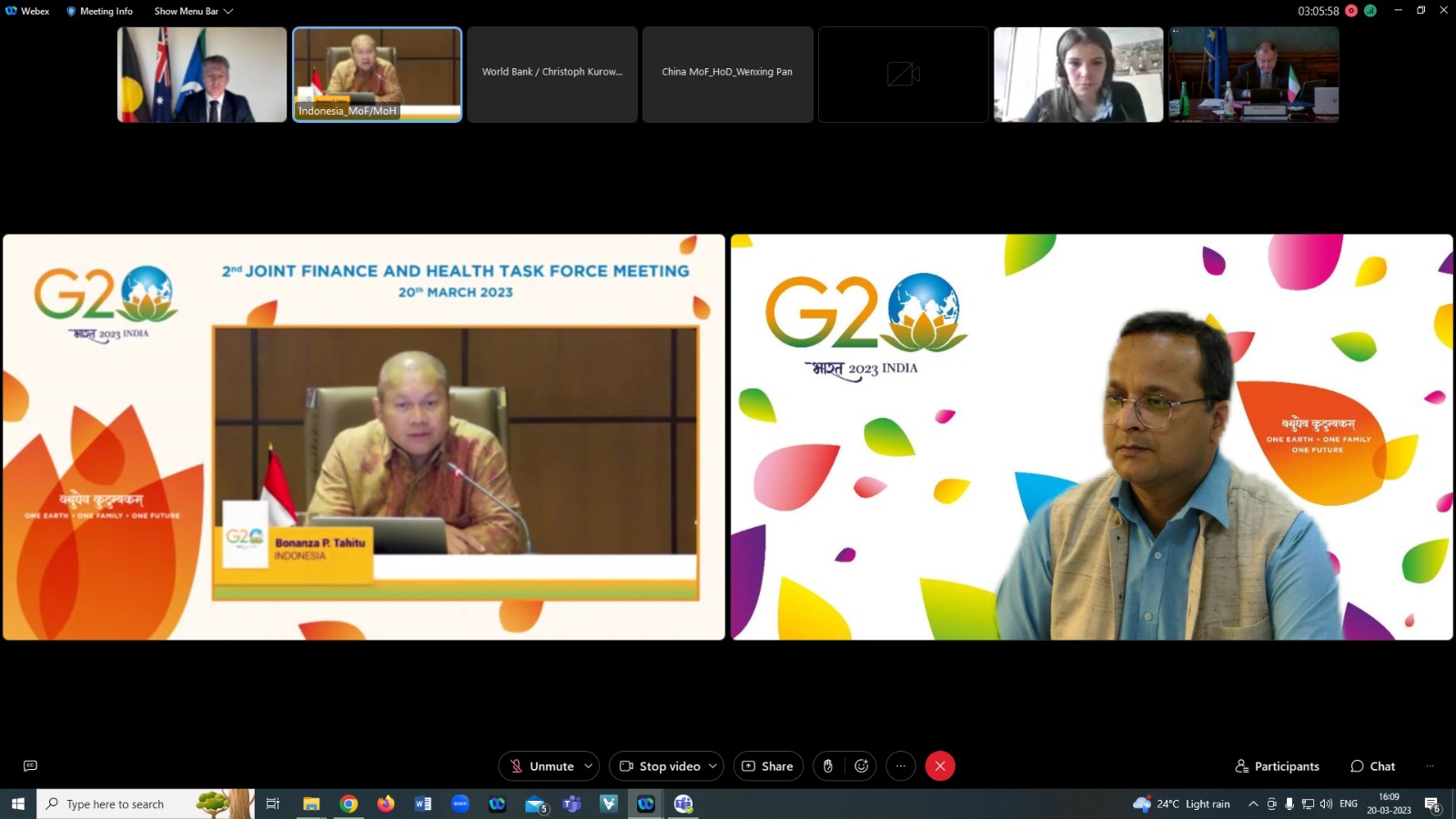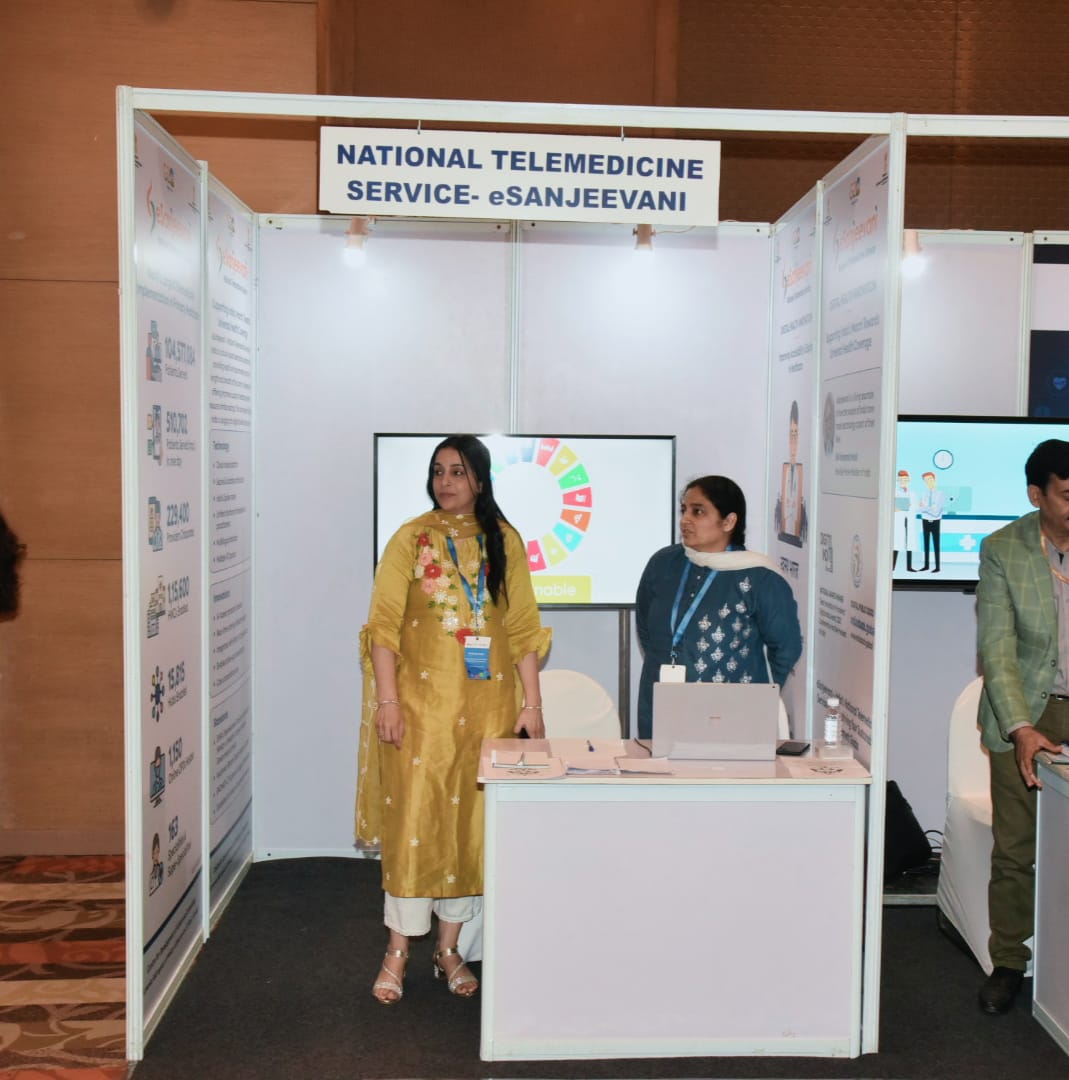By Lav Agarwal
As the world witnessed an unforeseen COVID-19 surge in several countries including China, Japan, South Korea, Hong Kong and Thailand in the opening weeks of this year, India took up the group of 20 (G20) Presidency and committed to strengthening the global health architecture to prepare and respond efficiently to future health emergencies.
Significantly, the G20 has a lot to offer in this domain for another major milestone ahead in this regard – the Global Health Security Agenda (GHSA) 2024 that strives for countries to take greater ownership of global health security efforts, and for more than 100 countries to improve health-security-related technical areas within five years.
Earlier, the World Economic Forum (WEF) 2015 in the backdrop of the rising incidence of Ebola, influenza and antibiotic-resistant pathogens flagged the “rapid and massive spread of infectious diseases” to be the second-highest risk in terms of global impact, just behind water crises and ahead of weapons of mass destruction.

The early part of the 21st century was an era of emerging zoonotic infections that had the potential to cause pandemic diseases with devastating consequences for global human populations. The outbreaks of SARS in 2003 and H5N1 avian influenza in 2004-5 provided the impetus for interdisciplinary collaborations to control and prevent zoonoses.
India has demonstrated competence in effectively managing these two importations and outbreaks. One Health – also a key focus in India’s G20 agenda – has emerged as a concept to enable such partnerships.
The Indian health system was able to demonstrate deep-rooted resilience by mounting” pre-emptive and proactive steps to provide a coherent response”.
It drew upon the fundamental strengths of “whole-of-government” and “whole-of-society” approaches. It was also able to leverage its inherent strength in information technology (IT) by first launching surveillance tools such as the Arogya Setu and later applications such as CoWIN that revolutionised the COVID vaccination programme.

To support health systems-wide strengthening, the National Health Mission (NHM) undertook Emergency COVID-19 Response Plans (ECRP) I and II that injected emergency funds to bolster infrastructure, logistics and technological components.
India thus mounted not just a 360-degree response but also made determined efforts in addressing COVID- related inequities that vulnerable communities suffer from.
India’s G20 Presidency foregrounds three main priorities for emergency prevention, preparedness and response.

It has strong technological, industrial and financial fundamentals to not just provide available, accessible and affordable medical countermeasures, vaccines, therapeutics, and diagnostics (VTDs) and back it up with Digital Health for its own billion-plus population but offers the surplus towards fostering cooperation among Global South partner countries.
There are several important lessons from the COVID-19 experience from countries in the Global South. The Global South encompasses categories such as developing countries, least-developed countries, underdeveloped countries, and low-income economies. It thus signifies countries with economies that face a common set of challenges including low per capita income and a lack of adequate resources to be able to respond to disasters such as pandemics of this nature.

India is emerging as the “voice of the Global South” and working to “depoliticise” the global supply of food, fertilisers and medical products.
In synergy with Prime Minister Narendra Modi’s vision of SabkaSaath, Sabka Vikas, SabkaVishwas, and SabkaPrayas(together, for everyone’s growth, with everyone’s trust, everyone’s efforts), and underpinned by India’s philosophy of VasudhaivaKutumbakam (one earth, one family, one future), India hosted a “new and unique” initiative — a virtual “Voice of Global South Summit” under the theme “Unity of Voice, Unity of Purpose” in January this year.
There is abundant evidence now that countries of the Global South bore a disproportionate burden of the COVID-19 pandemic. This was not just in terms of the humanitarian crisis but also in the context of inadequate testing, pandemic-specific medical countermeasures, and later access to affordable and efficacious COVID vaccines.

Under-resourced health service systems were conspicuous for supply chains that were less stable resulting in regular shortages of essential healthcare supplies.
As the WHO-EURO puts it, “health has become an integral part of economic, geopolitical, security, and social justice agendas, including human rights and domestic-foreign policy, among other emerging agendas”.
In the Global South context, India’s health diplomacy seeks to strengthen health security and public health; improve South-South collaboration and promote outcomes that are fair and contribute to the overall goal of enhancing health equity.

Author: Lav Agarwal is Additional Secretary, Ministry of Health & Family Welfare, Government of India
This op-ed is published under our global content-sharing project.
Disclaimer: The opinions expressed within this article are the personal opinions of the author. The Australia Today is not responsible for the accuracy, completeness, suitability, or validity of any information in this article. All information is provided on an as-is basis. The information, facts, or opinions appearing in the article do not reflect the views of The Australia Today and The Australia Today News does not assume any responsibility or liability for the same.




